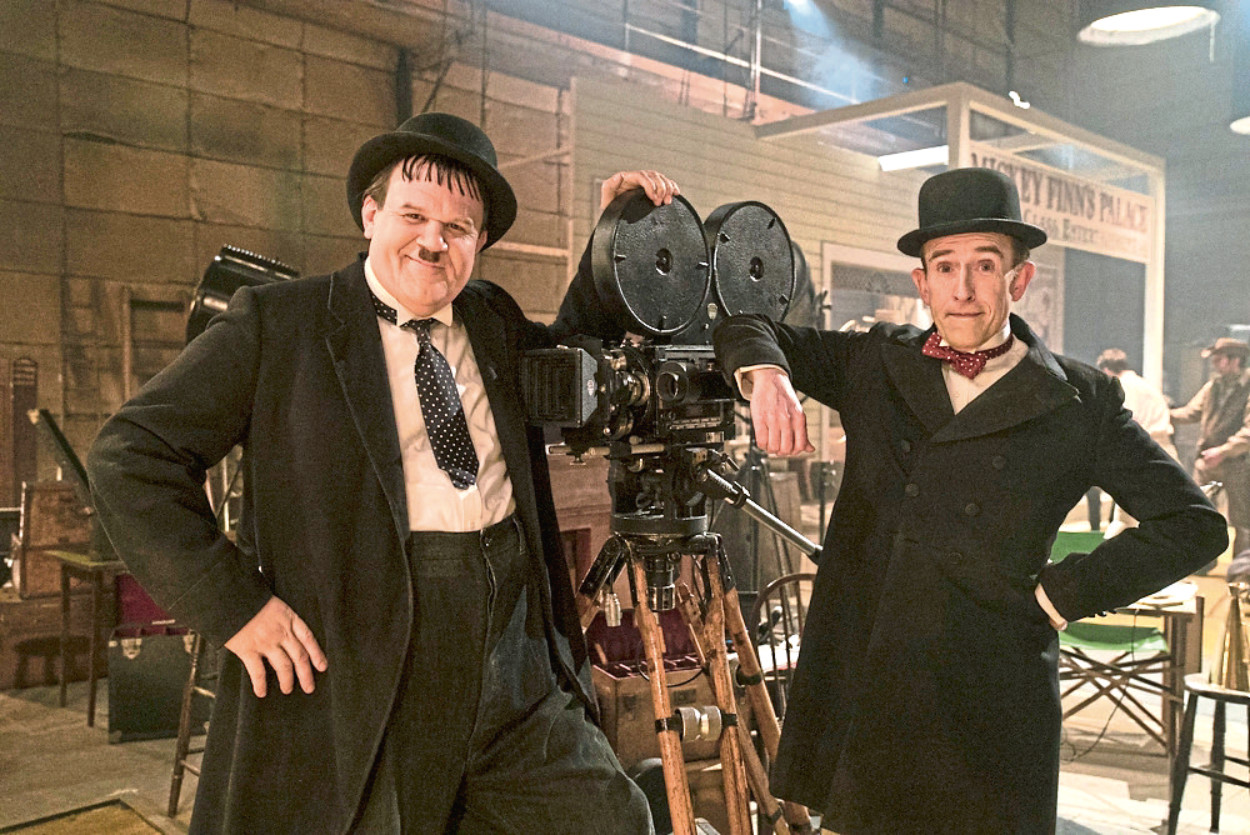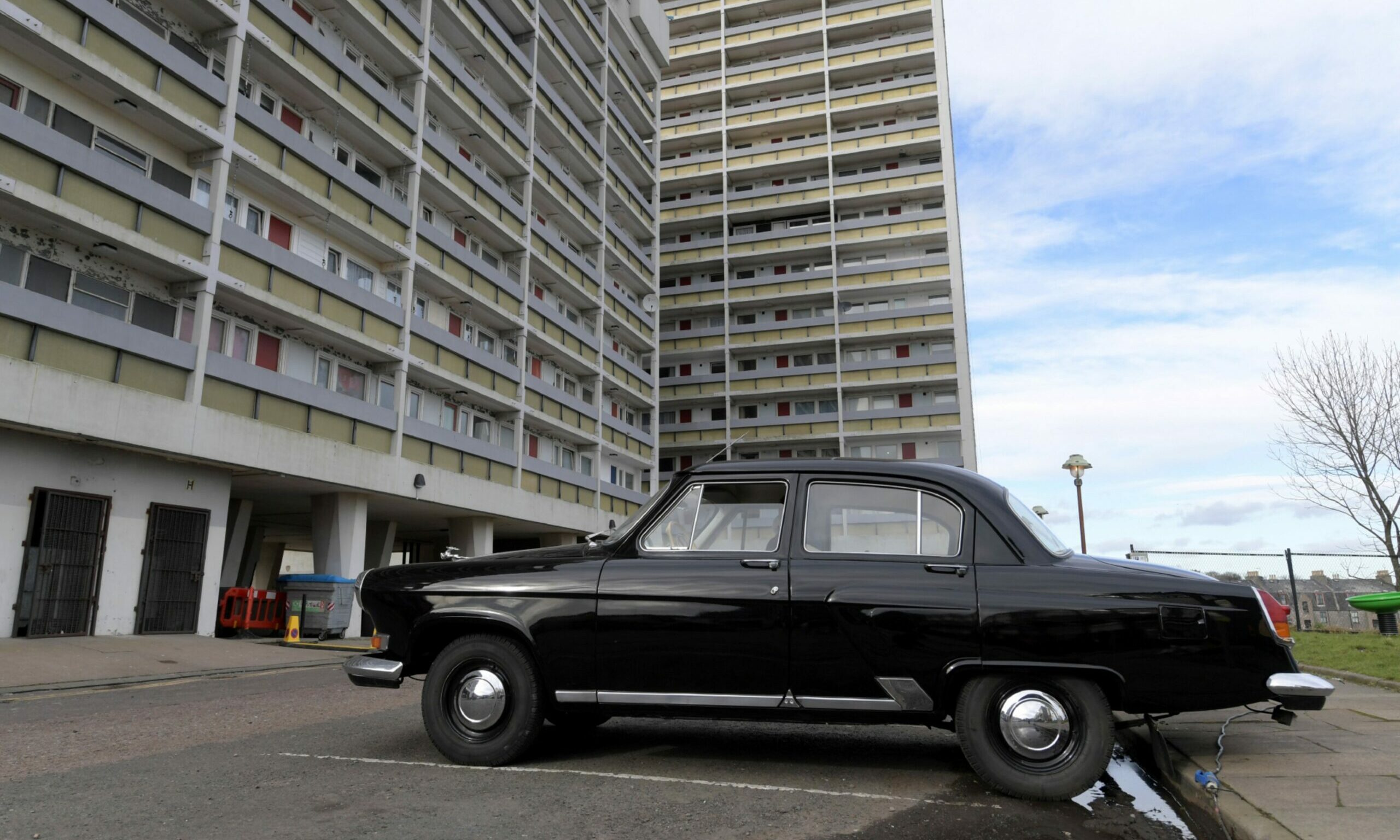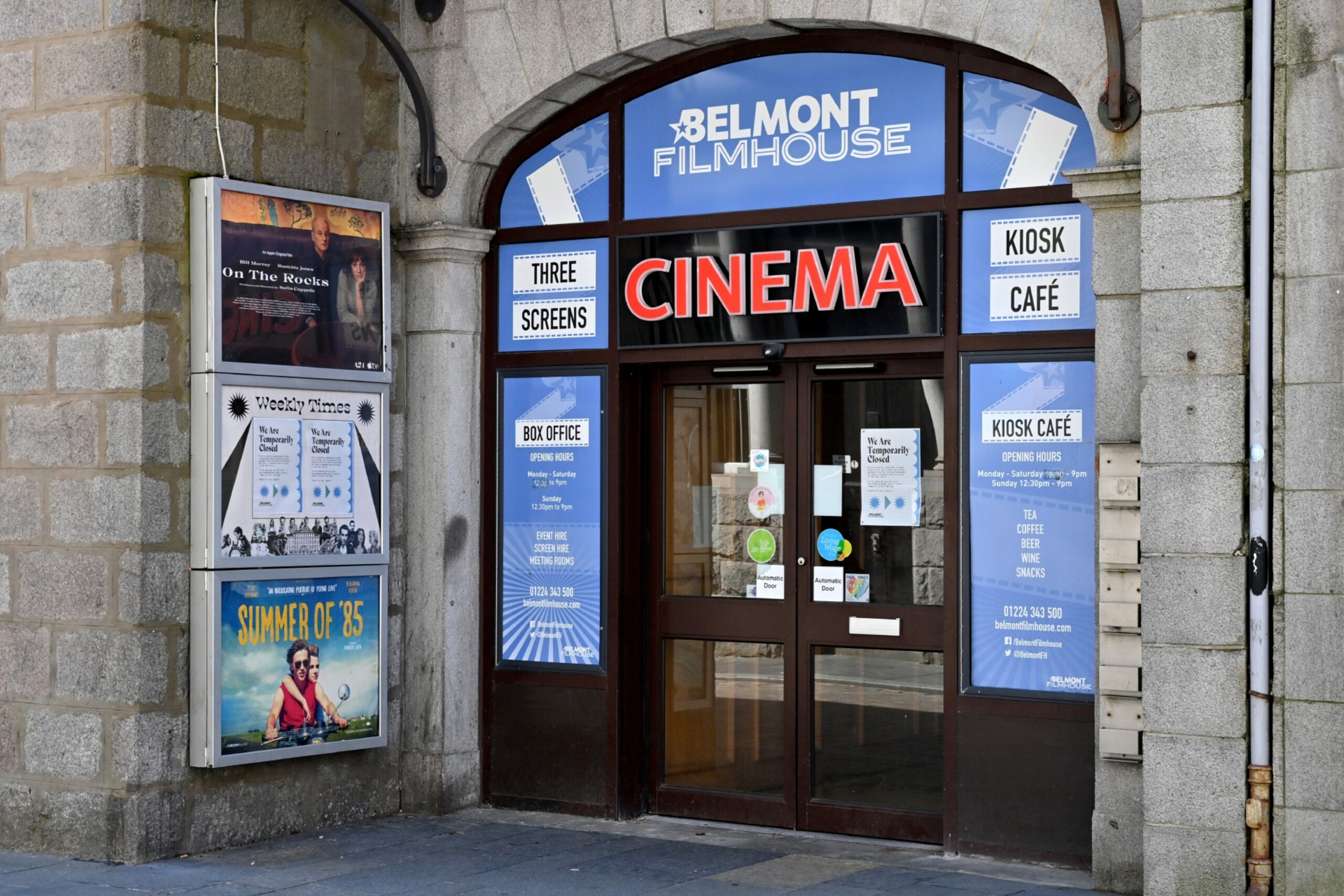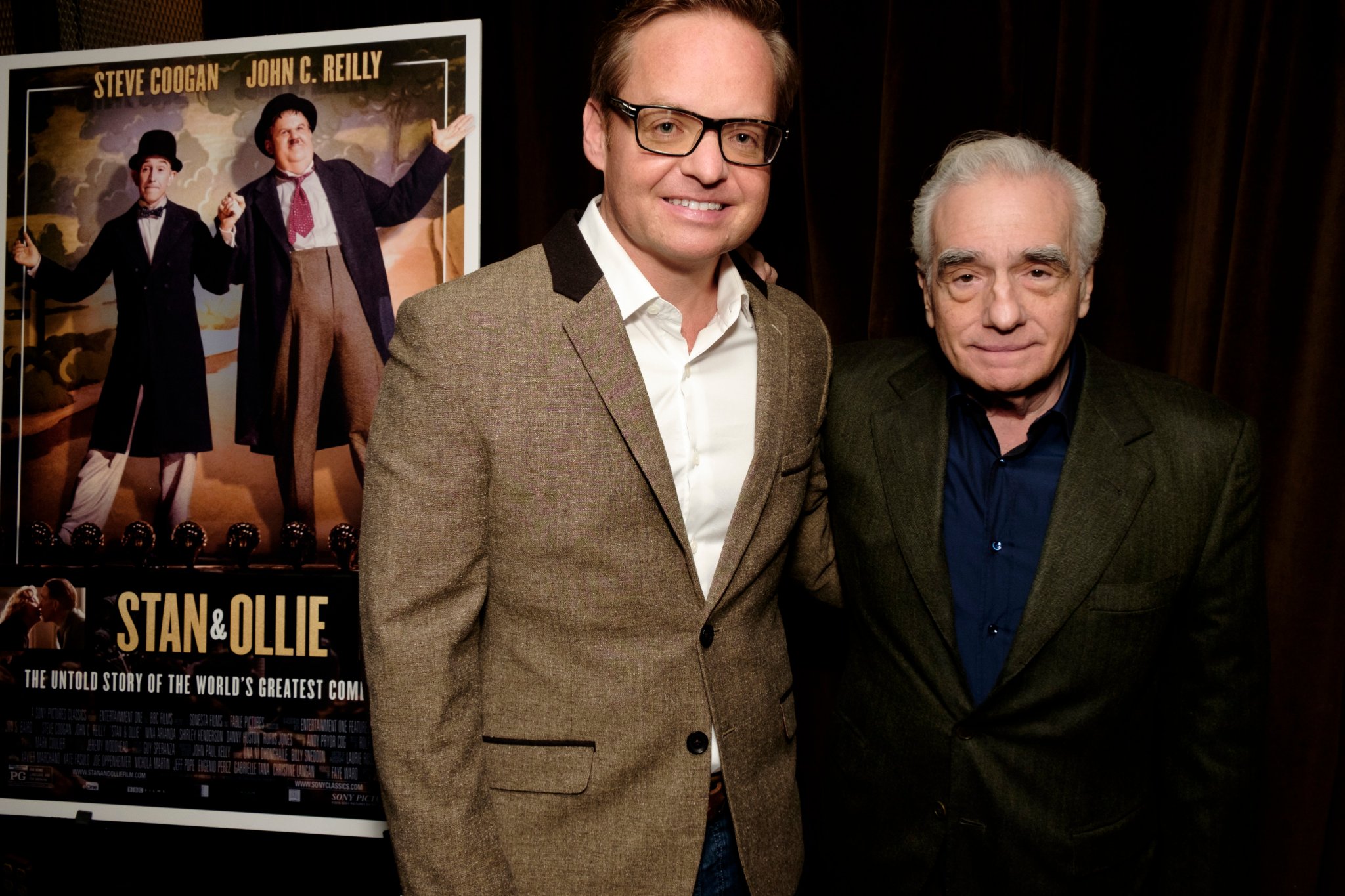
It was a political scandal which led to an ignominious climax in Australia and a heap of opprobrium being heaped on a narcissist.
But, even though the similarities are lurking in the background, Jon S Baird wasn’t talking about Matt Hancock in I’m a Celebrity when we chewed the fat this week, but discussing the antics of the 1970s Labour MP John Stonehouse, who unsuccessfully tried to fake his own death by leaving a pile of clothes on a beach in Miami, as the prelude to decamping to Oz with his lover Sheila Buckley.
Initially, some authorities thought he had been eaten by a great white shark in the Florida waters. But the whole house of cards collapsed soon enough and it ended with Stonehouse behind bars after being arrested in Melbourne on Christmas Eve in 1974, his reputation trashed, with bewildering amounts of debt in his wake.
Nor did matters improve when he conducted his own defence on no less than 21 charges of fraud, including theft, forgery, conspiracy to defraud and causing a false police investigation.
Understandably, given the lurid details which emerged, the case became an international sensation and Baird, the Peterhead-born director, has now brought it to life in a three-part TV series, starring Matthew Macfadyen and Keeley Hawes.
As a politics graduate from Aberdeen University in the 1990s, he was both fascinated by the rise and fall of a pillar of the establishment – Stonehouse was Postmaster General in Harold Wilson’s Cabinet until his doomed escape bid – and struck by the parallels between a story from almost 50 years ago and the current behaviour of some MPs.
He had a Messiah complex
He said: “My grandmother was a local politician and I remember one Sunday lunch in Peterhead where the guest was George Thomas, the speaker of the House of Commons [from 1976 to 1983], and it wasn’t your typical chat around the dinner table. He had this rich Welsh voice and he was fascinating company.
“So, when I read the John Stonehouse script [by John Preston, who previously created A Very British Scandal with Hugh Grant], it immediately caught my attention. I’ve always liked working on different types of projects, from Filth [his visceral adaptation of the controversial Irvine Welsh novel] to Stan & Ollie [his affectionate reflection on the twilight career of comedy legends Laurel and Hardy], and this had everything.
“It’s funny, it’s surreal, it’s bizarre and there is an element of tragedy to it, but it’s the fact Stonehouse really thought he could get away with it. The technology then was still at the pen and paper stage, rather than the large computer systems we have today, so he believed his own hype, reckoned he was untouchable and had a Messiah complex.
“I saw some of the same tendencies in Hancock swanning off to the Australian jungle and being paid lots of money while he attempted to redeem his reputation. It had elements of the same narcissism as Stonehouse, the sense he could do as he wanted and it was a reminder it’s amazing what you can get away with if you have a posh accent.
“I grew up in a working-class Scottish community, a place with no airs and graces, and it was one of the lessons I had to learn when I travelled down to start working in London: never be intimidated by a posh accent. Listen to what people are saying, not how they say it. Because nonsense spoken in a posh voice is still nonsense.”
Baird, who immersed himself in all aspects of film and television after moving to London, began his career as a runner at the BBC and quickly progressed through the ranks. He has worked with many A-list figures in the industry and recently attended an 80th birthday celebration for the legendary American director Martin Scorsese.
You might imagine that not too many things would faze him, but he admitted to a serious attack of butterflies when he participated in a special edition of University Challenge, which will be screened during the festive period – and although Jeremy Paxman may no longer be the sort of menacing, Jaws-rising-from-the-deep figure he was in the 1990s and the Noughties, Baird discovered he was still no pushover.
He said: “It’s such an intimidating atmosphere that I was as nervous that day as I’ve ever been about working with any actor. You have this impostor syndrome and I knew that I would never have been in the team while I was still at university.
“But they made me captain and I was very proud to be representing Aberdeen and it really was a pleasure to be involved. Paxman is no longer quite as fearsome as he used to be, but he still makes it clear when he thinks somebody has given a stupid answer and you feel as if everybody’s looking at you when you press the buzzer.
“I enjoyed it, though. It’s nice to have the chance to look back and forward and think about the journey you’ve made. But I’m sworn to secrecy about the outcome. You’ll need to watch the programme when it goes out on Boxing Day.”
It’s shaping up to be a busy time for Baird with his film Tetris due for release in March. But, although he’s based in the south of England, and has a peripatetic lifestyle, he keeps in touch with what’s happening at his roots and was saddened by the closure of the Belmont Filmhouse – a place he cherished – in October.
However, as arts venues across the country grapple with increasing overheads and diminishing audiences, he fears the public must be reminded to keep using these cinemas, galleries and museums or risk losing them altogether in the future.
He said: “The Belmont supported me all the way through my career, so it was very disappointing when I heard the news, but sadly, there are no easy answers.
Covid has changed people’s habits
“The pandemic has changed so many things and a lot of people have got out of the habit of going to watch films or concerts or exhibitions and, now we are in the midst of this economic disaster, they don’t have the money to spend on going out as much.
“I was really lifted by the news that the Edinburgh Filmhouse seems to have found a new buyer and perhaps something can still be done for the Belmont. I opened the new Peterhead cinema [in 2020] and they are doing well, so that’s a rare success story.
“But it’s a tough time for everybody.”
There’s only so much that any one person can do, but Baird has backed a variety of north-east initiatives, including the Doric Film Festival, and he is keen to return to Aberdeen in the spring. But while we can look forward to Stonehouse, parts of the film sector are in danger of doing their own vanishing act.
Stonehouse starts on ITV at 9pm on January 2 and will be broadcast on three consecutive nights.
FIVE QUESTIONS FOR JON S BAIRD
- What book are you reading? “El Diego Maradona – autobiography.”
- Who’s your hero/heroine? “Martin Scorsese.”
- Do you speak any foreign languages? “Un petit Francais.”
- What’s your favourite music or band? “Northern Soul.”
- What’s your most treasured possession? “My daughter.”




